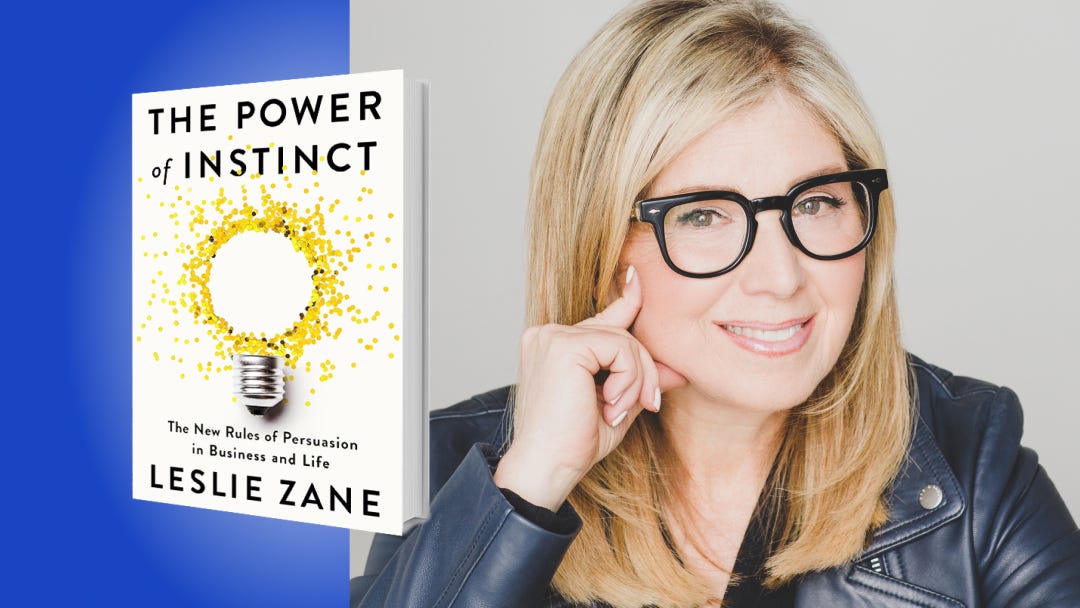Stop Trying to Persuade People: How to Naturally Attract Customers to Your Business
Leslie Zane shares 5 key insights from The Power of Instinct: The New Rules of Persuasion in Business and Life.

Do you make conscious purchasing choices? You probably don’t, because most of us operate on instinct more than reason when deciding what to buy. And understanding those human instincts can be a superpower for marketers, parents, and anyone else in the persuasion business. Here to help you unlock that power is Leslie Zane, author of The Power of Instinct: The New Rules of Persuasion in Business and Life. Leslie is a speaker and marketer and the founder of Triggers®, a brand consulting firm rooted in behavioral science. Here she is to share 5 of her big ideas.
1. A brand should stand for many things, not just one.
You’ve probably heard the old rule, “A brand should stand for only one thing.” You want to be focused, single-minded, etc. For example, if you’re Volvo, you should stand for safety. But it turns out that standing for just one thing shrinks a brand’s salience. The key to growth is having as many connections as possible. Like a game of Monopoly, the more territory you own, the better.
If you were, say, a wildly successful country artist with hugely popular albums, conventional wisdom would tell you to stick with writing and performing country songs. After all, you don’t want to turn off your loyal audience. What if they don’t receive your new sound well? Stick to what you know!
Well, Taylor Swift didn’t become one of the most successful artists of all time with a billion-dollar tour in 2023 by sticking to one sound. As she leaned into her own artistic curiosity, she expanded beyond country into pop, dance music, and folk, and with each new association, she has grown her audience and visibility. Swift also invited her fans into her life in an unusual way: we know her challenges, the people who helped her, and those who have not. Our relationship with Swift goes way beyond her music; it feels personal. And as she ventures into new music, she keeps reintroducing her past music to new generations. When your brand has these many connections, you create instinctive brand preference, and people are powerless to resist.
2. Familiarity is more powerful than uniqueness, and distinctiveness is best of all.
The traditional rule is that uniqueness is critical for brand success: stand out, differentiate or die, be the purple cow, etc. The rule of uniqueness would tell us that if you have a bottled water brand, you better not use sparkling streams or snow-capped mountains—or even the color blue— on your packaging. It’s cliché, boring, and generic. Except, the brain science is clear: we’re hardwired to crave the familiar, not the unique. We push the unique away.



